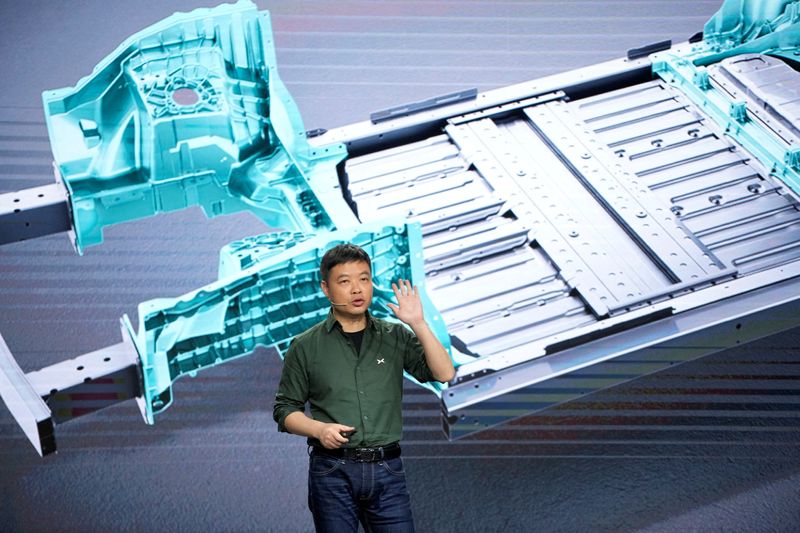SHANGHAI (Reuters) - China's electric vehicle (EV) maker Xpeng (NYSE:XPEV) unveiled on Sunday a new platform it developed in-house for making vehicles, which it said will reduce the development and manufacturing costs for its company's upcoming models.
The Smart Electric Platform Architecture (SEPA) 2.0 will help Xpeng to reduce costs of powertrain systems including batteries by 25% and those of intelligent driving system by 50% by the end of 2024, Brian Gu, Xpeng's president, told reporters in Shanghai on Sunday.
He said that these cost reductions would give Xpeng an edge against its rivals in an increasingly competitive market.
"Since early this year..., a number of players have been launching aggressive price cuts," said Gu.
"The focus on the capability of offering attractive products at affordable prices becomes even more important."
Xpeng will build its G6 SUV, which will debut at the Shanghai auto show starting on Tuesday, as the first model to be built on the SEPA 2.0, according to the company.
The architecture includes front and rear integrated aluminum die casting technologies and integrating battery packs into the car body, which will improve the manufacturing efficiency and reduce the weight of the vehicles, the company added.
Xpeng's rival Tesla (NASDAQ:TSLA) uses massive casting machines, also known as gigapresses, to make large single pieces of vehicle underbodies. It has since 2020 been manufacturing its Model Y with a single-piece rear casting part and in 2022 started using a front-casting part in its Texas plant.
In January, Tesla cut prices globally including China to spur demand while Chief Executive Officer Elon Musk said in March that demand at scale was limited by affordability.
More than 40 auto brands in China have followed Tesla and joined what analysts called a price war, slashing prices of their best-selling models to defend market share.

Xpeng's Chief Executive He Xiaopeng also said on Sunday that an automaker needs to achieve annual sales of 3 million units globally to get a chance to survive beyond a decade.
Xpeng's car sales slumped nearly 50% in the first quarter of the year, underperforming the overall EV segment in China.